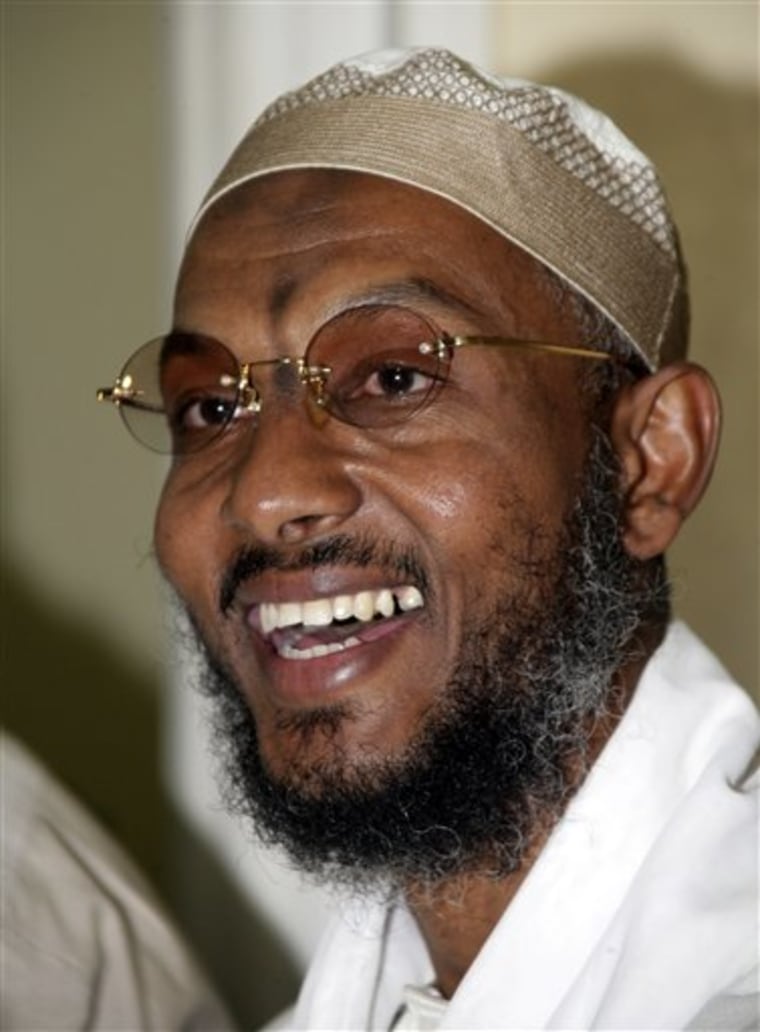An Al-Jazeera cameraman released from the U.S.-run Guantanamo Bay detention center last week described it Monday as the worst prison mankind has ever seen.
Sami al-Haj, a Sudanese citizen, was whisked from his hospital bed in a convoy escorted by police cars with flashing lights and wailing sirens to an outdoor event in his neighborhood organized by his family. His speech was broadcast live on Sudanese television.
"After 2,340 days spent in the most heinous prison mankind has ever known, we are honored to be here. Thank you, and thank all those defended us and of our right in freedom," he told the cheering crowd.
Al-Haj was the only journalist from a major international news organization held at Guantanamo and many of his supporters saw his detention as punishment for an Arabic television channel whose broadcasts angered U.S. officials.
The U.S. military charged he was a courier for a militant Muslim organization, an allegation his lawyers denied.
Al-Haj said he believed he was arrested because of U.S. hostility toward Al-Jazeera and because the media was reporting on U.S. rights violations in Afghanistan.
"I was subjected to 130 (interrogation) sessions, more than 35 about Al-Jazeera, and they wanted me to be a spy against Al-Jazeera," he said. He said that as a faithful Muslim, he rejected the offer.
Al-Haj, who arrived in Khartoum early Friday aboard a U.S. military plane, thanked the Sudanese people and their warm reception, which he said had made him "forget the long bitter years that we spent in humiliation, injustice and subjugation and oppression."
Before Monday's outdoor welcome ceremony, al-Haj received visitors in his hospital room, including dozens of senior Sudanese officials who wished him a speedy recovery.
Though able to walk a short distance at the event in his neighborhood, al-Haj was still weak after a 16-month hunger strike at Guantanamo.
His attorney, Zachary Katznelson, who met with al-Haj at the U.S. base April 11, said he was emaciated because of the hunger strike. He said al-Haj had been having problems with his liver and kidneys and had blood in his urine.
Al-Haj was never prosecuted so the U.S did not make public its full allegations against him. But in a hearing that classified the cameraman as an enemy combatant, U.S. officials alleged that in the 1990s, al-Haj was an executive assistant at a Qatar-based beverage company that provided support to Muslim fighters in Bosnia and Chechnya.
Two other Sudanese detainees at Guantanamo were released with al-Haj.
